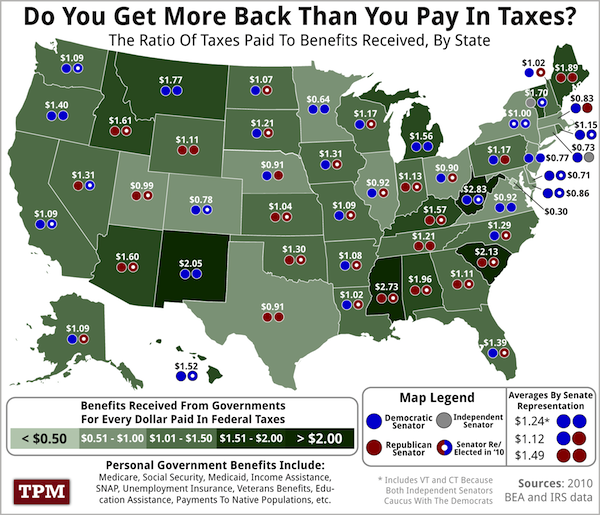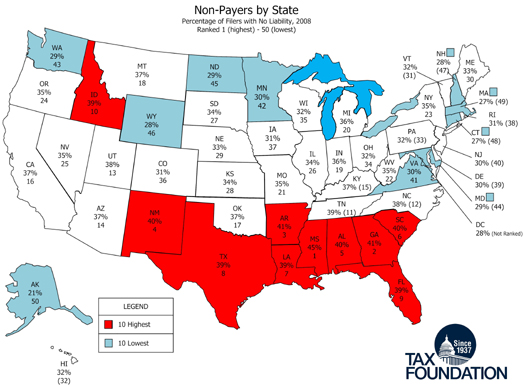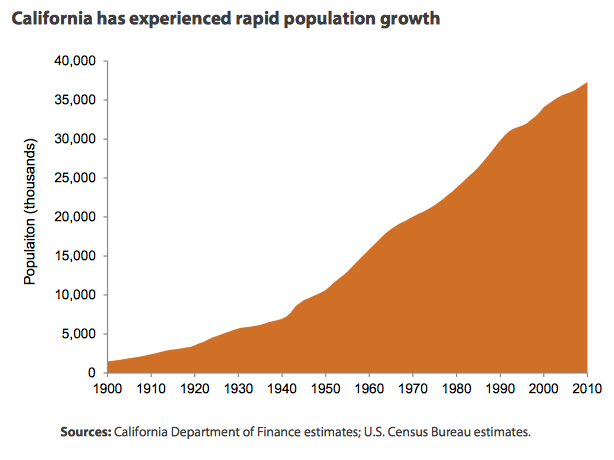Announcement
Collapse
No announcement yet.
Can California Be Saved?
Collapse
X
-
Re: Can California Be Saved?
why does this all sound OH so familiar.... oh yeah, now i remember...Originally posted by Victor Davis Hanson.....when the state's growing poor populations connect their exorbitant gas, power and housing costs with an elite agenda of rich coastal liberals, who do not seem to care about the people working hard to glimpse what the elites take for granted.
theres nuthin quite like 'life in the blue states'
-
Re: Can California Be Saved?
Hey Lek, it's expensive supporting the red states.Originally posted by lektrode View Postwhy does this all sound OH so familiar.... oh yeah, now i remember...
theres nuthin quite like 'life in the blue states'
Comment
-
Re: Can California Be Saved?
The distribution's not so clear cut. But generally MN is the biggest giver and WV is the biggest taker. A lot of this can fluctuate wildly by year, though. Natural disasters move the needle a lot.Originally posted by santafe2 View PostHey Lek, it's expensive supporting the red states.

The Koch Brothers' Tax Foundation wanted to look at it another way. They wanted to look at Romney's 47% and see if it held up...which states had the most people not paying income tax. I still think this isn't fair, because the south is generally poorer, but here's what those looney tunes found:

Still, I wonder why is everyone so worried about California?
It's one of the faster-growing states in the union. Population growth alone will carry it forward.
In general, if you're concerned about state finances, worry more about the east than the west, friends. Except the southern Atlantic-Coast states. From Maryland down to Florida, within about 50 miles of the drink, things are growing okay.
It's the Northeast, the Midwest, Appalachia, and the Deep South that largely stopped growing.
With no population growth to carry them forward, these states are where finance problems are going to happen.
And these states are going to be tough to spur population growth in. The Northeast is very expensive and has terrible weather. The Midwest is cheap, but with few good job prospects and arguably worse weather, Appalachia is cheap with the fewest good job prospects and a somewhat closed-culture, and the Deep South is cheap with few good job prospects and an even more closed-culture.
If you ask me, the Northeast has the best chance to get out of the population growth slump, but the people there have to get out of their own way and let developers go on a building spree. Greater Boston has done pretty well with getting some building going, but they're fowling it up by ignoring middle-income housing and commercial and building exclusively high-income nonsense. You'll never cross the chasm from 3% to 6% population growth with only luxury condos. Plus, of course, this requires updating all the infrastructure that runs the northeast. And you'll need a pretty big cudgel to get all the NIMBYs to pick a few spots for rapid dense expansion and to drive the highways and trains and sewers and reservoirs and all the rest of the infrastructure through that will service it.
That's where South Carolina screwed up. They let the growth happen with no infrastructure plans to deal with it at all. Now it's at the point where the SC Chamber of Commerce is begging for new taxes to just get something done to fix it. Very rare the business community asks for higher taxes for anything.
Anyways, the moral of the story is not to worry too much about finances in states where population is growing.
That's the big thing VT's article missed.
Detroit lost more than half its population.

California is growing rapidly:

The article is comparing oranges to baseballs here.
Comment
-
Re: Can California Be Saved?
Good charts DC. As always your contributions are excellent to the discussion
I still say California has a problem with finances. Fortunately the have a growth machine with the technology explosion, which may produce enough revenue to save them from a poorly run government.
There public schools are terrible and have been for decades. There university system is good but slipping a bit.
By the way I think Boston is the best city on the east coast. I've always been a Celtics fan, even though I've never lived there. Red Auerbach graduated from my college, and was good friends with one of my older buddies.
Comment
Comment